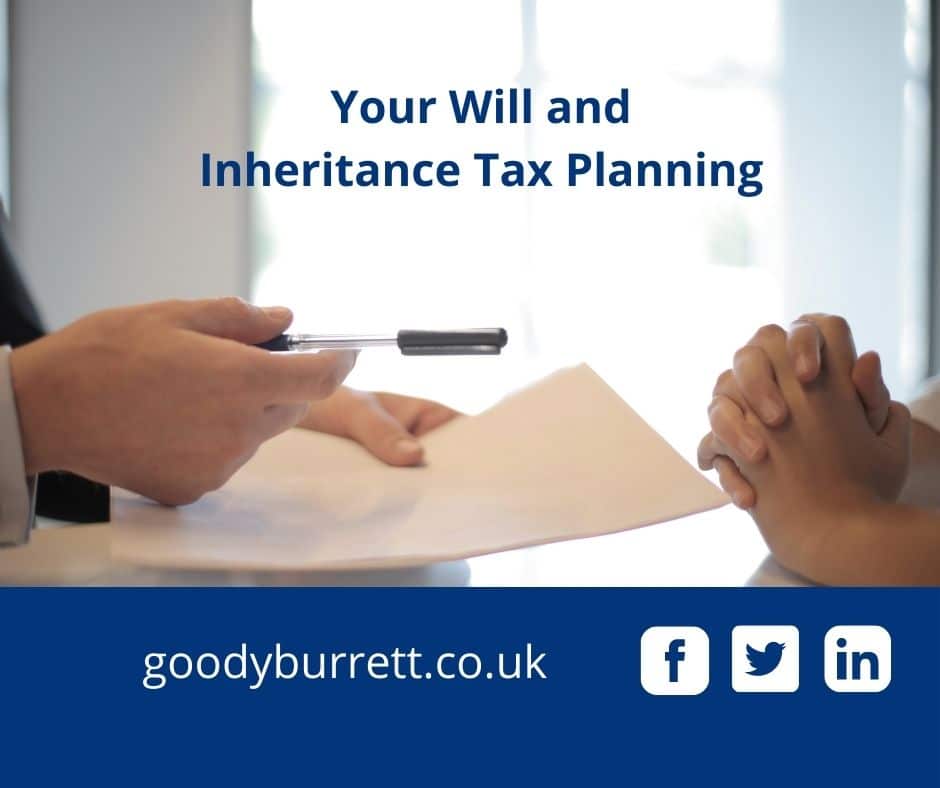Your Will and Inheritance Tax Planning
There are many reasons to ensure that your Will is up to date and relevant to your circumstances. One of the biggest is ensuring that on your death, your wishes are followed rather than your estate being divided subject to the Intestacy Rules – a set of rules that determines who will inherit your estate.
However, ensuring your Will is up to date also provides an opportunity for you to undertake any necessary tax planning.
A key part of the estate planning process, is to assess your financial estate against your personal circumstances to understand what your inheritance tax liability would be. Once you know this, you can work with your Solicitor, and if necessary, a Financial Advisor to legitimately plan for the future of you and your loved ones both before and after your death.
What is surprising to many people currently is that tax planning is no longer considered to be an exclusive activity for the very wealthy.
With continually raising house prices and an inheritance tax allowance that has been fixed now since 2009 many people are finding that even with just a property and modest savings, they need to consider the inheritance tax implications of their estates.
Further food for thought is that receipts from HMRC Tax and NIC Receipt data shows that in the tax year 2020 -2021 the treasury collected £5.3 billion in inheritance tax revenue.
Working with a Solicitor on your Will is the first step to ensuring that your loved ones are not left with an unexpected inheritance tax bill.
For further information or to make an appointment please call the Colchester office on 01206 577676 or our Dunmow office on 01371 873277.
Any email enquiries can be sent to [email protected]
For more information on Wills & Inheritance Tax Planning
Contact either of our offices, Colchester 01206 577676 or Dunmow 01371 873277 or you can email [email protected]

